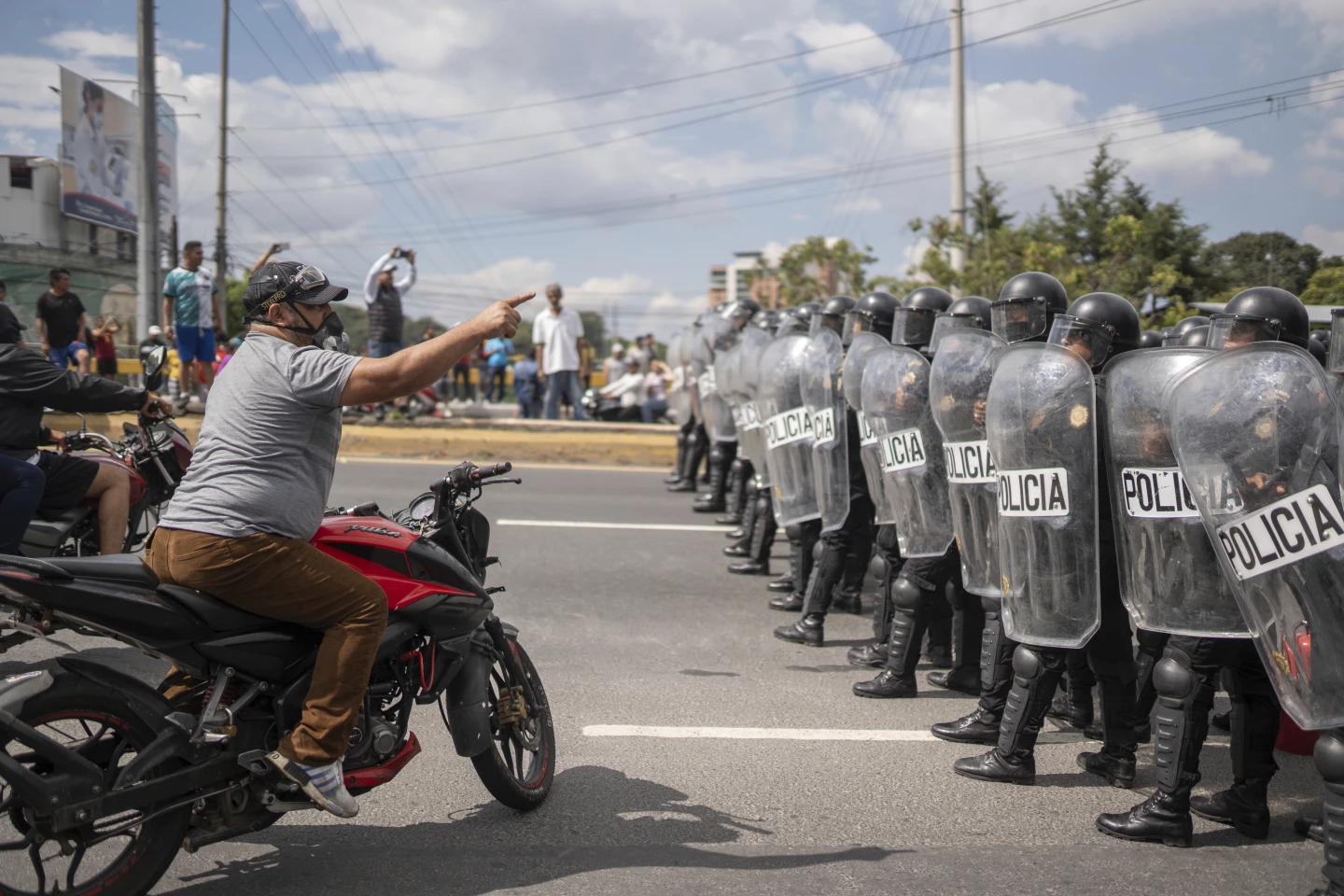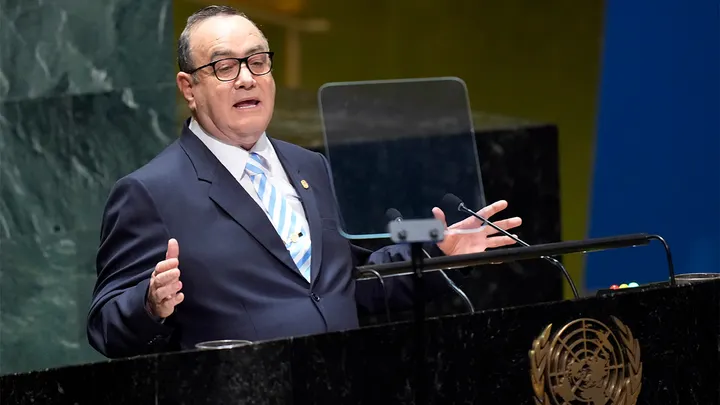Guatemalan Authorities Take Action Against Roadblocks Following President's Warning
Guatemalan authorities take action against roadblocks following president's warning while Guatemala has been in the grip of a crisis as protests led by farmers and Indigenous communities have blocked roads and disrupted daily life for more than a week.
Author:Rhyley CarneyReviewer:Paula M. GrahamOct 12, 202313.5K Shares233K Views

Guatemalan authorities take action against roadblocks following president's warningwhile Guatemala has been in the grip of a crisis as protests led by farmers and Indigenous communities have blocked roads and disrupted daily life for more than a week.
The demonstrators are demanding the resignation of Attorney General Consuelo Porras and expressing support for the incoming progressive President-elect, Bernardo Arévalo.
The Roots Of The Protest
Guatemala's current turmoil began in the aftermath of the presidential elections held in August.
Attorney General Consuelo Porras' office initiated several investigations related to the elections, and the suspension of President-elect Bernardo Arévalo's party raised alarm among his supporters.
They perceived these actions as attempts to undermine the incoming leader before he even took office in January.
The protesters, a coalition of Indigenous groups and rural dwellers, demand an end to what they see as political persecution by the prosecutors against Arévalo.
He had pledged to root out corruption, and the cases brought against him were viewed as an attempted coup by his supporters. These accusations fueled their determination to block roads and stage protests throughout the country.
President Giammattei's Response
President Alejandro Giammattei's response to the protests has escalated the crisis. He declared his intent to clear the roadblocks and even threatened to arrest the protest leaders.
He accused them of being funded and advised by foreigners and claimed that foreign money was used to support the protests.
Giammattei's strong stance against the protests marked a significant shift in the government's approach.
He asserted that the demonstrations were damaging the economy and causing vandalism, expressing his unwavering support for Attorney General Consuelo Porras.

International Perspective
Luis Almagro, the Secretary General of the Organization of American States, expressed concerns over the actions of Porras' office, describing them as "biased and irrational."
He argued that these actions threatened the democratic stability in Guatemala and undermined the independence and secrecy of the vote.
While Guatemala's Foreign Minister, Mario Búcaro, stated that the protests led to vandalism and negatively impacted millions of Guatemalans, Almagro insisted that the protests had been largely peaceful, with any disruptions being caused by criminal elements trying to exploit the situation.
Arévalo's Appeal And Calls For Resolution
Bernardo Arévalo, who positioned himself as a progressive outsider challenging the traditional elite that has long controlled Guatemala, called on President Giammattei to intervene.
He emphasized the importance of upholding constitutional rule and urged the government to listen to the people's clear demands.
Arévalo's political journey has been marked by legal attacks, including raids on electoral facilities and the suspension of his political party. These actions have significantly hindered his ability to govern.
Attorney General Consuelo Porras, whose resignation the protesters demand, has labeled the demonstrations against her as "illegal." She has called on authorities to clear the blocked roads and restore the free circulation of people.
The protests, though largely peaceful, have experienced a few incidents, with individuals driving their cars into protesters. These incidents led to arrests and added tension to the already volatile situation.
International Sanctions
It's important to note that Porras and other prosecutors have faced sanctions from the U.S. government, which has accused them of obstructing the anti-corruption fight and undermining democracy in Guatemala.
The withdrawal of their entry visas further complicates the international dimension of the crisis.
As Guatemala remains in the grip of this political turmoil, it is clear that the challenges facing the nation are multifaceted, encompassing issues of democracy, governance, and international relations.
The path forward remains uncertain, as protesters persist in their calls for justice and accountability while the government faces increasing pressure to respond to their demands.
Final Words
Guatemala is mired in a deepening crisis as protests, triggered by perceived political persecution and the suspension of President-elect Bernardo Arévalo's party, have paralyzed the nation for over a week.
President Giammattei's uncompromising stance and threats of arrests have exacerbated the situation, while international voices express concern over the country's democratic stability.
As the calls for resolution persist, and with the backdrop of international sanctions, Guatemala faces a challenging road ahead, with the outcome of these protests holding significant implications for the nation's future.

Rhyley Carney
Author

Paula M. Graham
Reviewer
Latest Articles
Popular Articles